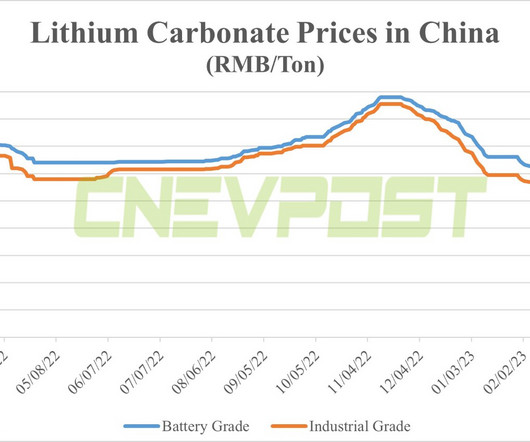Sodium-Ion Powered EVs Roll off From Chinese EV Factories
Get Electric Vehicle
JANUARY 24, 2024
The first mass-produced electric vehicle (EV) using a sodium-ion battery has been introduced by JAC Motors. While lithium-ion batteries are more developed and have a higher density than sodium-ion batteries, sodium-ion batteries are cheaper, dependable, and have better cold-weather performance. Why Sodium-ion Batteries?












Let's personalize your content